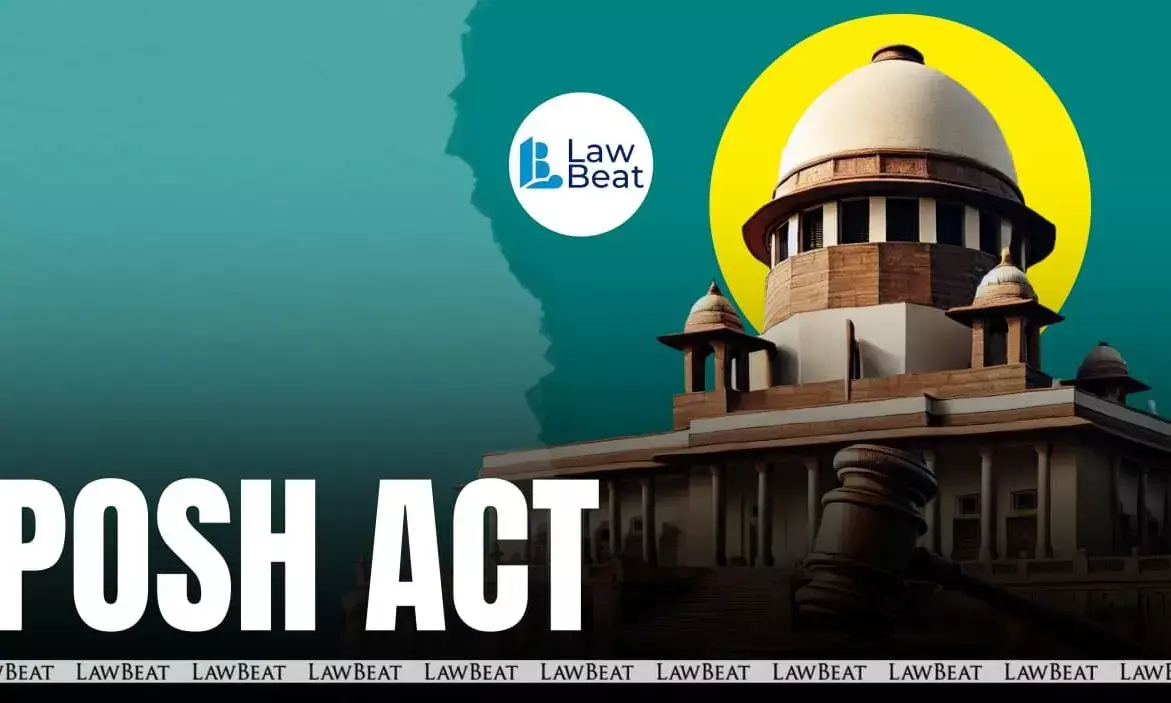SC: Sexual Harassment Complaint Must Be Filed Within Six Months; Time-Barred Complaints Liable To Be Rejected

Supreme Court holds Internal Committee (IC) at aggrieved woman’s workplace can inquire into complaint against employee of different department
The Supreme Court has clarified that under the Sexual Harassment of Women at Workplace (Prevention, Prohibition and Redressal) Act, 2013, complaints of sexual harassment must be filed within a maximum period of six months from the date of the last incident. A bench of Justices Pankaj Mithal and Prasanna B. Varale held that while limitation issues ordinarily involve mixed questions of fact and law, a complaint that is patently barred by limitation on the face of it may be rejected at the threshold, without calling the opposite party.
The ruling came on an appeal filed by a faculty member of the West Bengal National University of Juridical Sciences, Kolkata against Vice Chancellor Dr. Nirmal Kanti Chakrabarti, challenging the rejection of her complaint by the Local Complaints Committee (LCC). The LCC had dismissed her complaint as time-barred since the last alleged incident of sexual harassment occurred in April 2023 while the complaint was filed on December 26, 2023, beyond both the statutory period of three months and the extendable period of six months.
The Court held that the sexual harassment, if any, commenced in September 2019 and the last incident took place in April 2023. Since the complaint was lodged nearly eight months later, it fell outside the maximum permissible limitation. The bench observed:
“Where a complaint on the simple reading of the averments made therein appears to be patently barred by limitation, it can be rejected at the very first instance on the analogy of Order VII Rule 11 CPC, without even calling the other side to participate in the proceedings.”
The appellant had argued that she continued to face detrimental treatment and an intimidating work environment after April 2023, including her removal from the post of Director, Centre for Financial, Regulatory and Governance Studies in August 2023. She contended these events amounted to continuing harassment under Section 3(2) of the POSH Act.
The Court, however, found no direct link between the April 2023 incident of sexual harassment and subsequent administrative measures. The removal from her post, it noted, was based on the report of the National Foundation of Corporate Governance, an independent body, and the decisions of the University’s Executive Council consisting of eminent academicians, jurists and even Supreme Court Judges.
The bench ruled that these later decisions, while possibly inconvenient to the appellant, were collective administrative measures and did not create a gender-based hostile environment. They could not therefore be treated as continuations of earlier sexual harassment incidents.
“The administrative measures of August 2023 were independent and collective decisions which cannot be solely attributed to the Vice-Chancellor. They may have given an impression that they were in line with previous acts of harassment, but they were not part of continued sexual harassment,” the bench observed.
The Court also highlighted that the appellant herself had moved an application for condonation of delay, thereby acknowledging that the April 2023 incident was the last instance of sexual harassment and that her complaint was delayed.
Accordingly, the Supreme Court affirmed the Division Bench of the Calcutta High Court, which had restored the LCC’s decision to dismiss the complaint as time-barred. The Court held:
“We are of the view that the division bench of the High Court committed no error of law in restoring the decision of the LCC that the complaint of the appellant is time barred and is liable to be dismissed.”
In a significant direction, the Court also remarked on the lasting moral consequences of sexual misconduct. It stated:
“It is advisable to forgive the wrongdoer, but not to forget the wrongdoing. The wrong which has been committed against the appellant may not be investigated on technical grounds, but it must not be forgotten.”
The bench directed that this judgment shall form part of the Vice Chancellor’s resume, to be ensured by him personally, thereby making the finding a permanent record of his conduct.
Case Title: Vaneeta Patnaik Vs Nirmal Kanti Chakrabarti & Ors
Bench: Justices Pankaj Mithal and Prasanna B. Varale
Date: September 12, 2025
